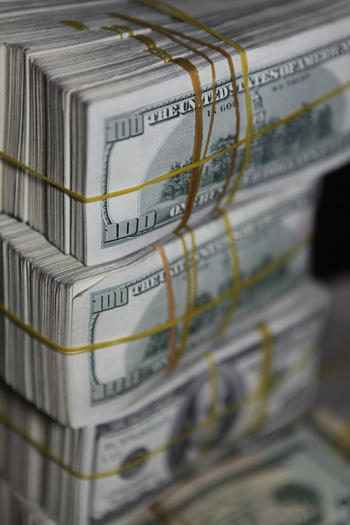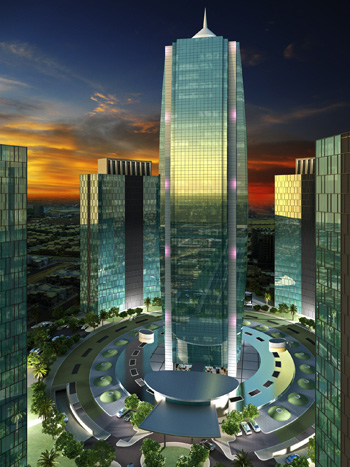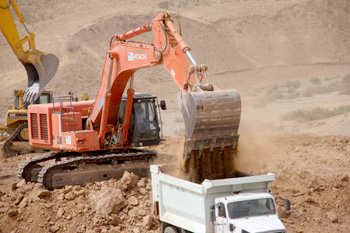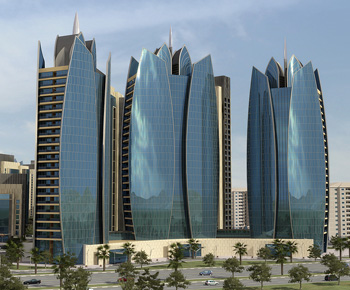Investing into Kurdistan – A changing Landscape
“Investors look for some pillars when they make their analysis of an investment climate. One is them is the legal framework. Kurdistan’s investment law was found to be the friendliest law for foreigners, with a high scale of incentives, flexibility in dealing with investors, giving good rights and position to the foreigners and protection measures.”

Written by T.K. Maloy
ERBIL: For the last several years the semi-autonomous Kurdistan region of northern Iraq has been attracting a relatively large – and growing amount – of investment. Both local, foreign direct investment and foreign/local partnerships.
The centre further informed that since 2006 around 21 billion dollars have been invested in private sectors in Kurdistan, 12 billion dollars of which have gone to investments in the capital city, Erbil and around 6 billion in Sulaymaniyah, the second largest city of Kurdistan. Making this possible was a law enacted in 2006 that foresaw the possibility for Kurdistan growth provided sufficient investment could be attracted. The law stipulates generous tax and tariff holidays ownership of property by foreign investors, repatriation of funds, and other favourable incentives making it probably the most progressive and most market-oriented investing laws in the Middle East.
“Investors look for some pillars when they make their analysis of an investment climate. One is them is the legal framework. Kurdistan’s investment law was found to be the friendliest law for foreigners, with a high scale of incentives, flexibility in dealing with investors, giving good rights and position to the foreigners and protection measures.”
Herish Muharam, chairman of the Kurdistan Board of Investment noted the following about the (Kurdistan Regional Government’s) KRGs investing regulation: “Investors look for some pillars when they make their analysis of an investment climate. One is them is the legal framework. Kurdistan’s investment law was found to be the friendliest law for foreigners, with a high scale of incentives, flexibility in dealing with investors, giving good rights and position to the foreigners and protection measures.“
The Investment Board head added that while the legal framework is “a pillar that exists (supporting FDI),” there are some other needed bulwarks which are still in their infancy: such as a sophisticated banking system, and consequently the absence of an insurance system. “These two, are the major barriers for investors.” Because of this, he noted that currently investors “look for areas and activities with a very quick circulation of capital, where there are faster returns on investments and where their capital is safer. For example, an investor is doing a housing project for a maximum of 2 or 3 years; they invest their money, sell the units, take their money and go out.“
Giving a breakdown on the amount invested in Kurdistan presently, Muharam said that the latest figures show approximately $22 billion in the size and scale of committed investments — defined as investment according to what licenses that the KRG has issued. He added that the commonly cited $12 million figure is the amount of investment that is already implemented versus commitment to invest, such as projects not completed or on their way to be completed.
He said 23 percent of the latter figure is considered FDI, noting “some of them are coming from pure foreign investment; some others are from joint ventures between local and foreign investors.” In addition to the still maturing banking and insurance sectors acting as possible barriers to even more FDI, Muharam said, “As we are a region, we cannot buy memberships in international institutions that are giving protection and guarantees to foreign direct investors. This is an issue that we are working on with the (Iraqi) federal government through the Ministry of Planning in order to secure some seats within these institutions for the Kurdistan region – even if it is through Iraq, we are ready to do it.“
On the infrastructural front, a great negative is the lack of a highway system, which is a key necessity for commerce, transportation and to create a coherent business zone for the region. Thurs far the policy of investment has been somewhat laissez faire on the KRG’s part as to where the government has been trying to direct FDI and other investments. “We have had sectors open to investors on a balanced way without giving priorities to them. Now we are in a different position; we have identified our priorities and the sectors that we want to promote and the projects that will get more incentives, rather than giving the same incentives to every sector.” These top priority sectors include tourism, industrial and agricultural sectors. With Muharam noting “we have identified projects in these sectors to be our targets.“
According to Herish Muharam during the previous period of investment after enactment of the 2006 law the KRG was “waiting for investors to come and give us their proposals and we preceded with their proposals according to the regulation and investment law that we had.” Now, however, the KRG “will be giving our projects to the investors, telling them what projects are available, everything will be clear and the land will be ready. They will only need to make their feasibility study, we have done research for them, so the only thing they need to do is to check the statistics and the research for the project… with this strategy we expect that some other sectors will come up as competitors to other sectors like housing.“
Critics have noted that there hasn’t been any investment into underlying productive sectors of the economy that will bring competitive advantage on the long term. Housing is consumption, it doesn’t add value to the country and one day Kurdistan will run out of oil and gas. Muharam in part agrees with this assessment but explains the following: “it is not an absolute fact that we have limited our activities to housing and that we haven’t done anything with the other sectors. To give you some real examples, in 2006 when we established the Kurdistan Investment Board, our average cement production was 200-300 tons per day while right now we are producing almost 30,000 tons per day and this is happening because of the investment law. In 2006 we had only 1 to 1.5 hours of power supply per day while right now we are producing almost 2,000 MW which cover 22-24 hours of power per day. In 2006 we didn’t produce a single kg or ton of steel or iron bars; right now we produce almost 2,500 tons per day.” He went on to list that prior to the investment law the region was importing every single bottle of mineral water from neighbouring countries “while now we cater almost 70 percent of our needs,” adding “In 2006 there wasn’t a single five-star star hotel in Kurdistan… (now) and we have almost eight new five star hotels under construction. All this is happening under investment licenses and investment law.“
Housing is consumption, it doesn’t add value to the country and one day Kurdistan will run out of oil and gas. Muharam in part agrees with this assessment but explains the following: “it is not an absolute fact that we have limited our activities to housing and that we haven’t done anything with the other sectors. To give you some real examples, in 2006 when we established the Kurdistan Investment Board, our average cement production was 200-300 tons per day while right now we are producing almost 30,000 tons per day and this is happening because of the investment law. In 2006 we had only 1 to 1.5 hours of power supply per day while right now we are producing almost 2,000 MW which cover 22-24 hours of power per day. In 2006 we didn’t produce a single kg or ton of steel or iron bars; right now we produce almost 2,500 tons per day.” He went on to list that prior to the investment law the region was importing every single bottle of mineral water from neighbouring countries “while now we cater almost 70 percent of our needs,” adding “In 2006 there wasn’t a single five-star star hotel in Kurdistan… (now) and we have almost eight new five star hotels under construction. All this is happening under investment licenses and investment law.“
However, Herish Muharam concedes “that what we have done so far will not add much to the economy in the long run. That is why we have rephrased our needs in a way that will translate into the support of the economic basis in the long run. For that we have started and prepared projects worth billions of US dollars in the tourism sector in the three governorates of Erbil, Duhok and Sulaymaniyah. We have started very high profile industrial zones in Erbil, Duhok and Sulaymaniyah.” He added that Kurdistan is very close to signing contracts or strategic agreements with master developers “with very high profiles and professional backgrounds. We expect that as a result of these projects the industrial and tourism sectors will jump into a phase in which they will start contributing to a great extent to the economy of Kurdistan.“
Various statistics show that the major investors in the Gulf, in the Middle East are from the US, followed by Germany, France, Japan and the UK. The Kurdistan region, however, has a different mix of investors, who are from chiefly from Turkey, Lebanon and Kuwait. Gaining the trust of European and US investors is a key goal for KRG economic planners.
“Again, we are back to the investment climate. First of all, our major investors are from the Arab countries, which is a very strong sign for us that the idea of Kurdistan as a gateway to Iraq has been accepted by everyone. It gives a strong message to the international community that we are working hard to reconstruct the whole of Iraq through Kurdistan. Secondly, Turkey and other investors come here because of their familiarity with the environment and their recognition of the potential that exists in this place, as it is very similar to their own countries.“
Perhaps the largest challenge of all is for the KRG to communicate thoroughly the “security and stability” brand of the region. Though having ridden out the Gulf Wars, the region had its share of previous troubles and the neighbouring countries – Iran, Syria, and southern federal Iraq – are unstable nation states. Kurdistan’s recent track record for security is strong one, with low crime, and officials note that not one Coalition soldier based in the region was killed during the Gulf War. European visitors to the region often comment on the safety of doing business there and compare it favourably with other destinations. Also at question is the KRG’s potential independence in the long term and question of the ultimate borders of the region. “The disputed areas and our relations with Bagdad are something that we have a benchmark for and we are sticking to it: the constitution. We accept and agree on each statement on the written constitution that was voted on by almost 80 percent of Iraqis,” he said. Muharam added: “Now for some reason some of the leaders of the federal government tried to have different readings for this vote and this is not acceptable at all. We are ready to claim our rights in the most civil way, to promote the rights of Kurds being a part of Iraq as Iraqis and to ensure that their rights are highlighted very clearly in the constitution and we are sticking to that.“
He acknowledges that there problems issues with Turkey and Iran – though both are also trading partners – noting “we are also very willing to overcome these problems in a way that respects the rights of our neighbours and the rights of Kurds within the boundaries of Iraq.” The goal post for independence are set high, and do not appear a possibility in the near future, but in the meanwhile the path of semi-autonomy is leading to positive outcomes, many analysts say.
“We are bringing Kurdistan to a stage which would be a model for peace-making and economic progress, a model of living together in a society that can contain everyone regardless of religion, colour or ethnicity,” said Muharam, adding, “We maintain a very good and strong relationship with Turkey, and we are proud of that. Turkey is playing a very important role in the economic development of Kurdistan and we are happy to have maintained such relationship with Iran and our neighbouring countries as well.“
The stated goal of the KRG is that there are “no reservations” about working with any country who wants to be a part of regional development, to make money and to provide services. “So we have been working hard in maintaining different relationships with neighbouring countries.” He noted that “With Turkey it was a good and successful experience.” “In 2004 we signed the first contract with a Turkish company to start implementing the Sulaymaniyah International Airport, which is one of our star projects now. Erbil International Airport followed by another contract also implemented by a Turkish company.“
The power of the investment flows and the outcome in for the larger economy is indicated by the estimated GDP for 2012, which is tipped to hit a strong 12 percent. While there are wild cards in developing this formerly nascent economic region, the track record thus far has been a strong one.